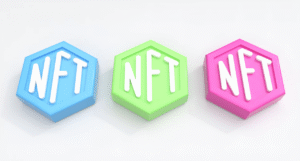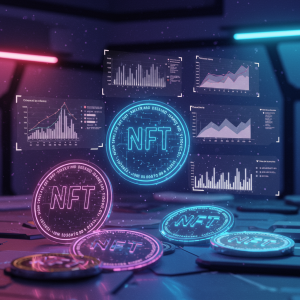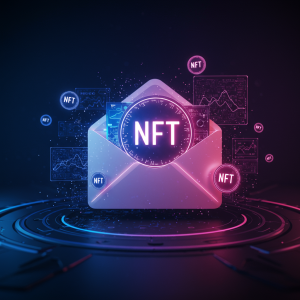Corporate NFT Adoption: Transforming B2B Landscapes

While consumer-facing NFT projects often dominate headlines, the quiet revolution happening in corporate environments deserves equal attention. Businesses increasingly recognize non-fungible tokens as powerful tools for solving complex B2B challenges across various industries.
Reshaping Corporate Identity and Asset Management
Major corporations have begun incorporating NFTs into their operational frameworks, moving beyond mere experimentation. These digital assets serve multiple functions simultaneously: verifiable certificates, immutable records, and programmable access keys for business relationships.
The pharmaceutical giant Pfizer, for instance, implemented NFT-based verification systems for tracking intellectual property rights across their research partnerships. This approach reduced dispute resolution timeframes by approximately 67% while providing transparent attribution for collaborative innovations.
Similarly, shipping conglomerate Maersk revolutionized its documentation processes by tokenizing bills of lading and customs declarations. The resulting ecosystem allows instantaneous verification of cargo provenance and reduces administrative overhead costs by an estimated 15-20% annually.
Supply Chain Transformation Through Tokenization
Perhaps nowhere has corporate NFT adoption proven more immediately valuable than in supply chain management. The inherent properties of non-fungible tokens—uniqueness, provenance tracking, and programmability—address longstanding challenges in multi-party supply systems.
Luxury goods manufacturer LVMH expanded its blockchain initiatives through tokenized authentication certificates that follow products from factory floor to retail shelf. This implementation not only combats counterfeiting but also enables unprecedented visibility into product lifecycles and secondary market transactions.
According to McKinsey’s Digital Transformation Survey, enterprises implementing blockchain-based supply tracking report average efficiency improvements of 11-29% depending on industry vertical, with NFTs providing the necessary unique digital identifiers for physical assets.
Corporate Partnerships and Access Management
Business relationships themselves have become subject to tokenization. Forward-thinking corporations now represent partnership agreements, joint ventures, and strategic alliances as programmable NFTs with encoded terms and conditions.
Insurance provider Allianz pioneered this approach by tokenizing reinsurance contracts among its consortium partners. The resulting smart contract system automatically triggers claim processing and settlement based on predefined conditions, reducing processing times from weeks to minutes in many cases.
Visit our comprehensive guide on tokenized business relationships for detailed implementation strategies and consultation services.
Intellectual Property Management Revolution
Corporate intellectual property portfolios represent another frontier for NFT adoption. Patents, trademarks, copyrights, and trade secrets gain unprecedented protection and monetization opportunities through tokenization.
IBM’s patent division has experimented with NFT-based licensing agreements that dynamically adjust royalty distributions based on actual usage patterns. This approach provides real-time compensation for intellectual property utilization while maintaining immutable records of permitted uses.
Similarly, media conglomerate Warner Bros. restructured its massive licensing operation to leverage NFT-based verification for partner authentication and automated royalty distribution, significantly reducing administrative overhead and unauthorized usage.
Corporate Identity and Membership Applications
Beyond tangible assets, corporations have begun tokenizing aspects of organizational identity itself. Membership in corporate consortiums, industry associations, and partnership networks increasingly relies on NFT verification rather than traditional credentialing systems.
The Enterprise Ethereum Alliance demonstrates this concept through tokenized membership credentials that grant varying levels of access to resources, voting rights, and participation opportunities based on membership tier.
These applications extend to corporate governance as well. Shareholder voting, board member credentials, and executive authorizations increasingly leverage NFT-based verification to ensure proper authentication and maintain immutable records of corporate decision-making.
Real Estate and Physical Asset Tokenization
Commercial real estate represents a particularly promising sector for corporate NFT adoption. Property titles, usage rights, and fractional ownership structures gain efficiency and liquidity through tokenization.
Real estate investment firm Jamestown partnered with technology providers to tokenize ownership shares in commercial properties, creating programmable assets that automatically distribute rental income and appreciate based on property valuation changes.
Manufacturing corporations have similarly begun tokenizing equipment ownership, maintenance records, and usage rights. John Deere, for example, pioneered NFT-based service records for agricultural equipment, creating immutable maintenance histories that significantly impact resale valuations.
Challenges in Corporate Implementation
Despite clear benefits, challenges remain in corporate NFT adoption. Integration with legacy systems presents technical hurdles, while regulatory uncertainty creates compliance concerns in certain jurisdictions.
Corporate legal departments often struggle with tokenized contract enforcement and cross-border recognition of digital assets. Additionally, accounting standards for NFT valuation remain under development across most major financial jurisdictions.
Nevertheless, forward-thinking enterprises increasingly view these challenges as transitional rather than prohibitive. The potential efficiency gains, cost reductions, and new business models enabled by NFT technology continue driving corporate adoption despite implementation complexities.
Future Outlook for Corporate NFT Utilization
Looking ahead, several emerging trends suggest continued expansion of corporate NFT adoption across B2B environments:
Integration with IoT systems will likely accelerate, creating digital twins of physical assets with complete lifecycle tracking capabilities.
Increasing regulatory clarity will enable more conservative enterprises to implement NFT solutions without compliance concerns.
Cross-chain interoperability improvements will facilitate more complex multi-party business processes spanning different blockchain ecosystems.
Most importantly, standardization efforts across industry verticals will establish common frameworks for B2B NFT implementation, reducing development costs and technical barriers to adoption.
Conclusion
Corporate NFT adoption represents far more than technological experimentation—it demonstrates practical business value across numerous B2B applications. From supply chain optimization to intellectual property management, tokenization addresses longstanding challenges while enabling entirely new business models.
As implementation costs decrease and technical barriers diminish, we anticipate accelerating adoption across conservative industry segments that previously observed from the sidelines. For enterprises seeking competitive advantage in increasingly digital marketplaces, NFT integration has evolved from optional consideration to strategic necessity.








